How to Create Industry-Specific User Research Forms Using AI
How to Create Industry-Specific User Research Forms Using AI
How to Create Industry-Specific User Research Forms Using AI



Have you spent years navigating the complexities of traditional user research forms? Then, you’ll know how critical it is to tailor your questions to meet the unique needs of your industry. But how do you keep pace with evolving user expectations and diverse industry requirements? The answer lies in harnessing the power of Artificial Intelligence.
With over a decade in user research, I’ve witnessed the transformative potential of AI in creating more relevant, engaging, and insightful user research forms. In this blog post, we’ll explore how to craft industry-specific user research forms using AI, complete with use cases, best practices, and some compelling stats.
#1 Understand Industry-specific Goals and Challenges
Begin with a deep dive into your industry’s landscape. Healthcare IT News reports 82% of healthcare organizations are using AI to enhance patient engagement and satisfaction. The more you understand the specific goals and challenges, the more effectively you can tailor your user research.
AI Survey Form Builders for Healthcare
In the healthcare sector, improving patient care is paramount. Researchers need to focus on patient satisfaction, compliance with healthcare regulations, and managing sensitive data. AI can help generate questions that align with these goals, ensuring compliance and enhancing the patient experience.
AI Survey Form Builders Best Practices
Conduct industry research and engage with stakeholders to identify key objectives.
Align your research goals with industry-specific challenges and opportunities.
#2 Customize Question Generation with AI
Leverage AI to generate questions that resonate with your audience. McKinsey reports 65% of automotive companies use AI to personalize customer interactions. AI can analyze previous interactions, user behavior, and industry trends to craft questions that are both relevant and engaging.
AI Survey Form Builders for Automotive
For the automotive industry, AI can generate questions about vehicle preferences, driving habits, and satisfaction with specific features. If a user frequently inquires about electric vehicles, the form can prompt detailed questions about battery life, charging infrastructure, and eco-friendly options.
AI Survey Form Builders Best Practices
Use AI tools to dynamically adjust questions based on user responses and historical data.
Ensure questions are framed in a language familiar to your target audience and relevant to industry-specific concerns.
#3 Implement Sector-specific Adaptive Question Flows
Create adaptive question flows that respond to user inputs in real-time. Salesforce reports 90% of consumers expect personalized interactions with brands. AI helps to keep the conversation relevant and engaging, avoiding the pitfalls of generic, one-size-fits-all questionnaires.
AI Survey Form Builders for Retail
In retail, if a user indicates a preference for online shopping, AI can tailor the flow to skip in-store experience questions and focus on aspects like website usability, product availability, and delivery preferences. This adaptation keeps the survey focused and user-friendly.
AI Survey Form Builders Best Practices
Develop conditional logic to ensure questions evolve based on previous answers.
Test different question flows to optimize for clarity and user engagement.
#4 Enhance User Interaction with AI-driven Personalization
Use AI-driven personalization to enhance the user experience. AI interprets responses using Natural Language Processing (NLP), making interactions feel less like a form and more like a conversation.
AI Survey Form Builders for Hospitality
In the hospitality industry, AI-powered forms can ask guests about their stay preferences, such as room amenities, dining experiences, or local activities. For repeat visitors, it might ask how this visit compared to their last, fostering a sense of continuity and attentiveness. Phocuswright reports 73% of travelers prefer forms that remember their preferences from previous interactions. Likewise, 85% of users find AI-enhanced forms more engaging than traditional ones, according to TechCrunch.
AI Survey Form Builders Best Practices
Integrate conversational AI to respond in real-time to user inputs.
Use NLP to tailor follow-up questions based on user sentiments and preferences.
#5 Integrate Advanced Analytics for Industry-specific Insights
Integrate AI-powered forms with advanced analytics tools to analyze data and generate insights that are directly relevant to your industry. Financial Times reports 60% of financial institutions use AI to enhance customer feedback analysis. This allows for real-time adjustments and informed decision-making.
AI Survey Form Builders for Banking
For the finance sector, AI can analyze feedback on banking services, detect trends in customer satisfaction, and highlight areas for improvement. For example, it can visualize customer responses about mobile banking, highlighting preferences for specific features or concerns about security. 75% of businesses report faster decision-making when using AI-driven analytics, according to Gartner.
AI Survey Form Builders Best Practices
Connect your form platform with data analytics tools to visualize insights in real-time.
Use dashboards and reports tailored to industry-specific metrics to guide strategic decisions.
Conclusion
Creating industry-specific user research forms using AI survey form builders like Metaforms isn’t just about following a trend—it’s about revolutionizing how we gather and interpret user insights. By understanding industry-specific goals, customizing questions, implementing adaptive flows, enhancing user interactions, and integrating with advanced analytics, you can transform your user research forms into powerful tools for collecting actionable, relevant data.
Embrace AI as your ally in creating smarter, more engaging research forms that resonate with your audience and provide the insights you need to stay ahead in your industry. Ready to take the plunge? Sign-up with Metaforms.ai today.
Have you spent years navigating the complexities of traditional user research forms? Then, you’ll know how critical it is to tailor your questions to meet the unique needs of your industry. But how do you keep pace with evolving user expectations and diverse industry requirements? The answer lies in harnessing the power of Artificial Intelligence.
With over a decade in user research, I’ve witnessed the transformative potential of AI in creating more relevant, engaging, and insightful user research forms. In this blog post, we’ll explore how to craft industry-specific user research forms using AI, complete with use cases, best practices, and some compelling stats.
#1 Understand Industry-specific Goals and Challenges
Begin with a deep dive into your industry’s landscape. Healthcare IT News reports 82% of healthcare organizations are using AI to enhance patient engagement and satisfaction. The more you understand the specific goals and challenges, the more effectively you can tailor your user research.
AI Survey Form Builders for Healthcare
In the healthcare sector, improving patient care is paramount. Researchers need to focus on patient satisfaction, compliance with healthcare regulations, and managing sensitive data. AI can help generate questions that align with these goals, ensuring compliance and enhancing the patient experience.
AI Survey Form Builders Best Practices
Conduct industry research and engage with stakeholders to identify key objectives.
Align your research goals with industry-specific challenges and opportunities.
#2 Customize Question Generation with AI
Leverage AI to generate questions that resonate with your audience. McKinsey reports 65% of automotive companies use AI to personalize customer interactions. AI can analyze previous interactions, user behavior, and industry trends to craft questions that are both relevant and engaging.
AI Survey Form Builders for Automotive
For the automotive industry, AI can generate questions about vehicle preferences, driving habits, and satisfaction with specific features. If a user frequently inquires about electric vehicles, the form can prompt detailed questions about battery life, charging infrastructure, and eco-friendly options.
AI Survey Form Builders Best Practices
Use AI tools to dynamically adjust questions based on user responses and historical data.
Ensure questions are framed in a language familiar to your target audience and relevant to industry-specific concerns.
#3 Implement Sector-specific Adaptive Question Flows
Create adaptive question flows that respond to user inputs in real-time. Salesforce reports 90% of consumers expect personalized interactions with brands. AI helps to keep the conversation relevant and engaging, avoiding the pitfalls of generic, one-size-fits-all questionnaires.
AI Survey Form Builders for Retail
In retail, if a user indicates a preference for online shopping, AI can tailor the flow to skip in-store experience questions and focus on aspects like website usability, product availability, and delivery preferences. This adaptation keeps the survey focused and user-friendly.
AI Survey Form Builders Best Practices
Develop conditional logic to ensure questions evolve based on previous answers.
Test different question flows to optimize for clarity and user engagement.
#4 Enhance User Interaction with AI-driven Personalization
Use AI-driven personalization to enhance the user experience. AI interprets responses using Natural Language Processing (NLP), making interactions feel less like a form and more like a conversation.
AI Survey Form Builders for Hospitality
In the hospitality industry, AI-powered forms can ask guests about their stay preferences, such as room amenities, dining experiences, or local activities. For repeat visitors, it might ask how this visit compared to their last, fostering a sense of continuity and attentiveness. Phocuswright reports 73% of travelers prefer forms that remember their preferences from previous interactions. Likewise, 85% of users find AI-enhanced forms more engaging than traditional ones, according to TechCrunch.
AI Survey Form Builders Best Practices
Integrate conversational AI to respond in real-time to user inputs.
Use NLP to tailor follow-up questions based on user sentiments and preferences.
#5 Integrate Advanced Analytics for Industry-specific Insights
Integrate AI-powered forms with advanced analytics tools to analyze data and generate insights that are directly relevant to your industry. Financial Times reports 60% of financial institutions use AI to enhance customer feedback analysis. This allows for real-time adjustments and informed decision-making.
AI Survey Form Builders for Banking
For the finance sector, AI can analyze feedback on banking services, detect trends in customer satisfaction, and highlight areas for improvement. For example, it can visualize customer responses about mobile banking, highlighting preferences for specific features or concerns about security. 75% of businesses report faster decision-making when using AI-driven analytics, according to Gartner.
AI Survey Form Builders Best Practices
Connect your form platform with data analytics tools to visualize insights in real-time.
Use dashboards and reports tailored to industry-specific metrics to guide strategic decisions.
Conclusion
Creating industry-specific user research forms using AI survey form builders like Metaforms isn’t just about following a trend—it’s about revolutionizing how we gather and interpret user insights. By understanding industry-specific goals, customizing questions, implementing adaptive flows, enhancing user interactions, and integrating with advanced analytics, you can transform your user research forms into powerful tools for collecting actionable, relevant data.
Embrace AI as your ally in creating smarter, more engaging research forms that resonate with your audience and provide the insights you need to stay ahead in your industry. Ready to take the plunge? Sign-up with Metaforms.ai today.
Have you spent years navigating the complexities of traditional user research forms? Then, you’ll know how critical it is to tailor your questions to meet the unique needs of your industry. But how do you keep pace with evolving user expectations and diverse industry requirements? The answer lies in harnessing the power of Artificial Intelligence.
With over a decade in user research, I’ve witnessed the transformative potential of AI in creating more relevant, engaging, and insightful user research forms. In this blog post, we’ll explore how to craft industry-specific user research forms using AI, complete with use cases, best practices, and some compelling stats.
#1 Understand Industry-specific Goals and Challenges
Begin with a deep dive into your industry’s landscape. Healthcare IT News reports 82% of healthcare organizations are using AI to enhance patient engagement and satisfaction. The more you understand the specific goals and challenges, the more effectively you can tailor your user research.
AI Survey Form Builders for Healthcare
In the healthcare sector, improving patient care is paramount. Researchers need to focus on patient satisfaction, compliance with healthcare regulations, and managing sensitive data. AI can help generate questions that align with these goals, ensuring compliance and enhancing the patient experience.
AI Survey Form Builders Best Practices
Conduct industry research and engage with stakeholders to identify key objectives.
Align your research goals with industry-specific challenges and opportunities.
#2 Customize Question Generation with AI
Leverage AI to generate questions that resonate with your audience. McKinsey reports 65% of automotive companies use AI to personalize customer interactions. AI can analyze previous interactions, user behavior, and industry trends to craft questions that are both relevant and engaging.
AI Survey Form Builders for Automotive
For the automotive industry, AI can generate questions about vehicle preferences, driving habits, and satisfaction with specific features. If a user frequently inquires about electric vehicles, the form can prompt detailed questions about battery life, charging infrastructure, and eco-friendly options.
AI Survey Form Builders Best Practices
Use AI tools to dynamically adjust questions based on user responses and historical data.
Ensure questions are framed in a language familiar to your target audience and relevant to industry-specific concerns.
#3 Implement Sector-specific Adaptive Question Flows
Create adaptive question flows that respond to user inputs in real-time. Salesforce reports 90% of consumers expect personalized interactions with brands. AI helps to keep the conversation relevant and engaging, avoiding the pitfalls of generic, one-size-fits-all questionnaires.
AI Survey Form Builders for Retail
In retail, if a user indicates a preference for online shopping, AI can tailor the flow to skip in-store experience questions and focus on aspects like website usability, product availability, and delivery preferences. This adaptation keeps the survey focused and user-friendly.
AI Survey Form Builders Best Practices
Develop conditional logic to ensure questions evolve based on previous answers.
Test different question flows to optimize for clarity and user engagement.
#4 Enhance User Interaction with AI-driven Personalization
Use AI-driven personalization to enhance the user experience. AI interprets responses using Natural Language Processing (NLP), making interactions feel less like a form and more like a conversation.
AI Survey Form Builders for Hospitality
In the hospitality industry, AI-powered forms can ask guests about their stay preferences, such as room amenities, dining experiences, or local activities. For repeat visitors, it might ask how this visit compared to their last, fostering a sense of continuity and attentiveness. Phocuswright reports 73% of travelers prefer forms that remember their preferences from previous interactions. Likewise, 85% of users find AI-enhanced forms more engaging than traditional ones, according to TechCrunch.
AI Survey Form Builders Best Practices
Integrate conversational AI to respond in real-time to user inputs.
Use NLP to tailor follow-up questions based on user sentiments and preferences.
#5 Integrate Advanced Analytics for Industry-specific Insights
Integrate AI-powered forms with advanced analytics tools to analyze data and generate insights that are directly relevant to your industry. Financial Times reports 60% of financial institutions use AI to enhance customer feedback analysis. This allows for real-time adjustments and informed decision-making.
AI Survey Form Builders for Banking
For the finance sector, AI can analyze feedback on banking services, detect trends in customer satisfaction, and highlight areas for improvement. For example, it can visualize customer responses about mobile banking, highlighting preferences for specific features or concerns about security. 75% of businesses report faster decision-making when using AI-driven analytics, according to Gartner.
AI Survey Form Builders Best Practices
Connect your form platform with data analytics tools to visualize insights in real-time.
Use dashboards and reports tailored to industry-specific metrics to guide strategic decisions.
Conclusion
Creating industry-specific user research forms using AI survey form builders like Metaforms isn’t just about following a trend—it’s about revolutionizing how we gather and interpret user insights. By understanding industry-specific goals, customizing questions, implementing adaptive flows, enhancing user interactions, and integrating with advanced analytics, you can transform your user research forms into powerful tools for collecting actionable, relevant data.
Embrace AI as your ally in creating smarter, more engaging research forms that resonate with your audience and provide the insights you need to stay ahead in your industry. Ready to take the plunge? Sign-up with Metaforms.ai today.
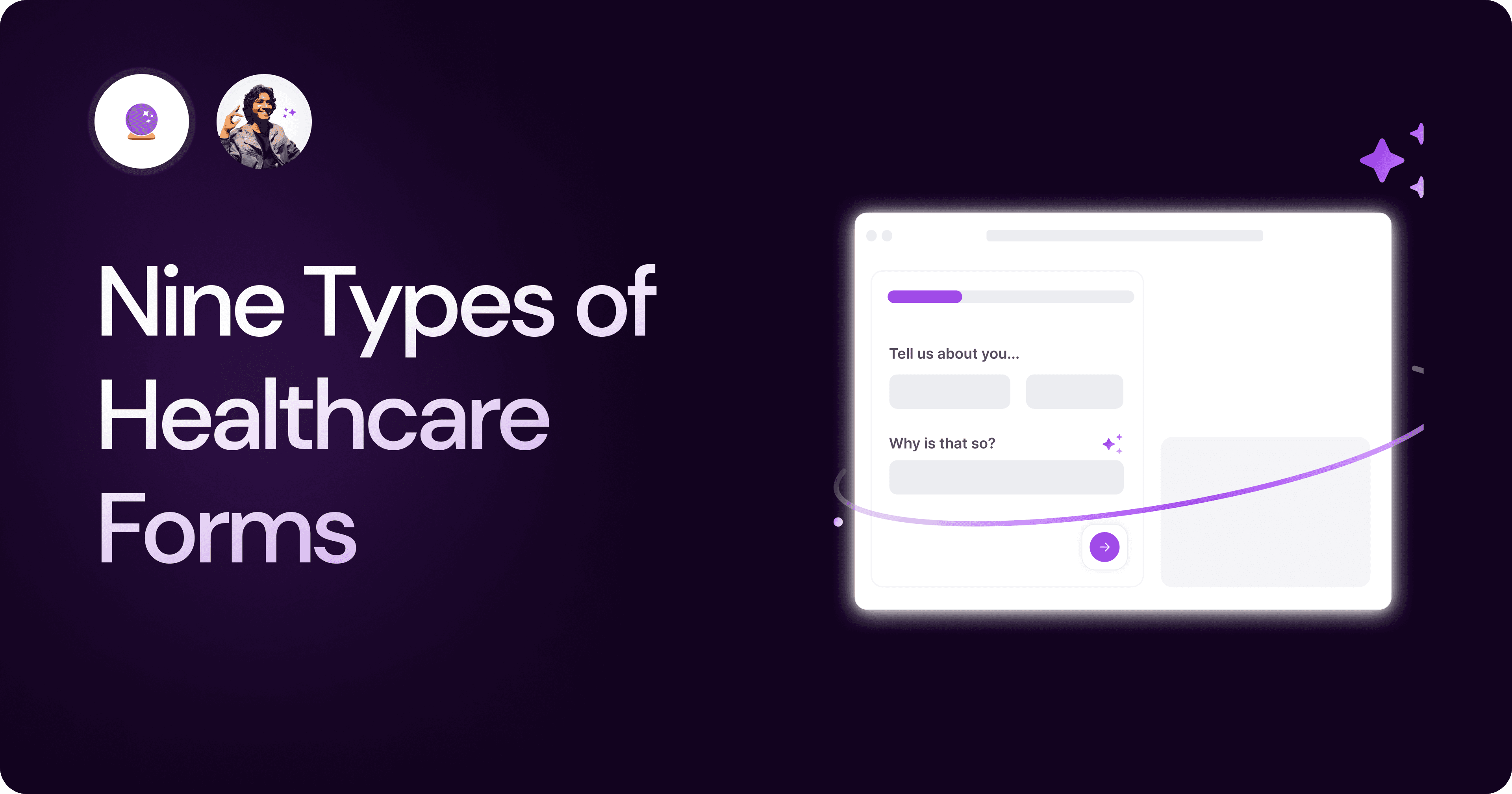
Nine Types of Healthcare and Medical Forms.
Medical forms are a must-have for any healthcare business or practitioner. Learn about the different kinds of medical and healthcare forms.
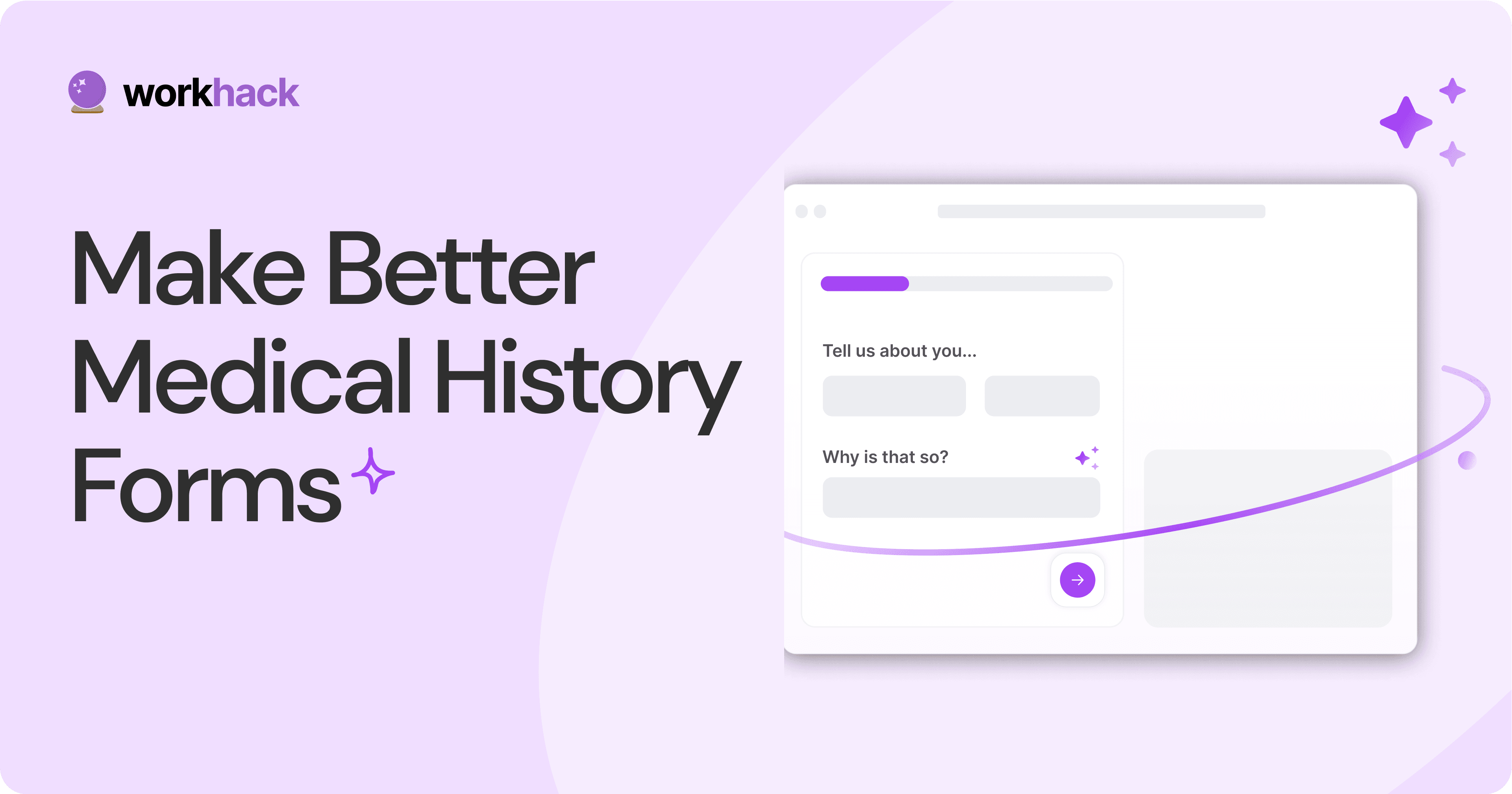
4 Tips for Better Medical History Forms.
Medical history forms are central to patient care, onboarding, and medical administration records. Learn how to make them easier to fill.
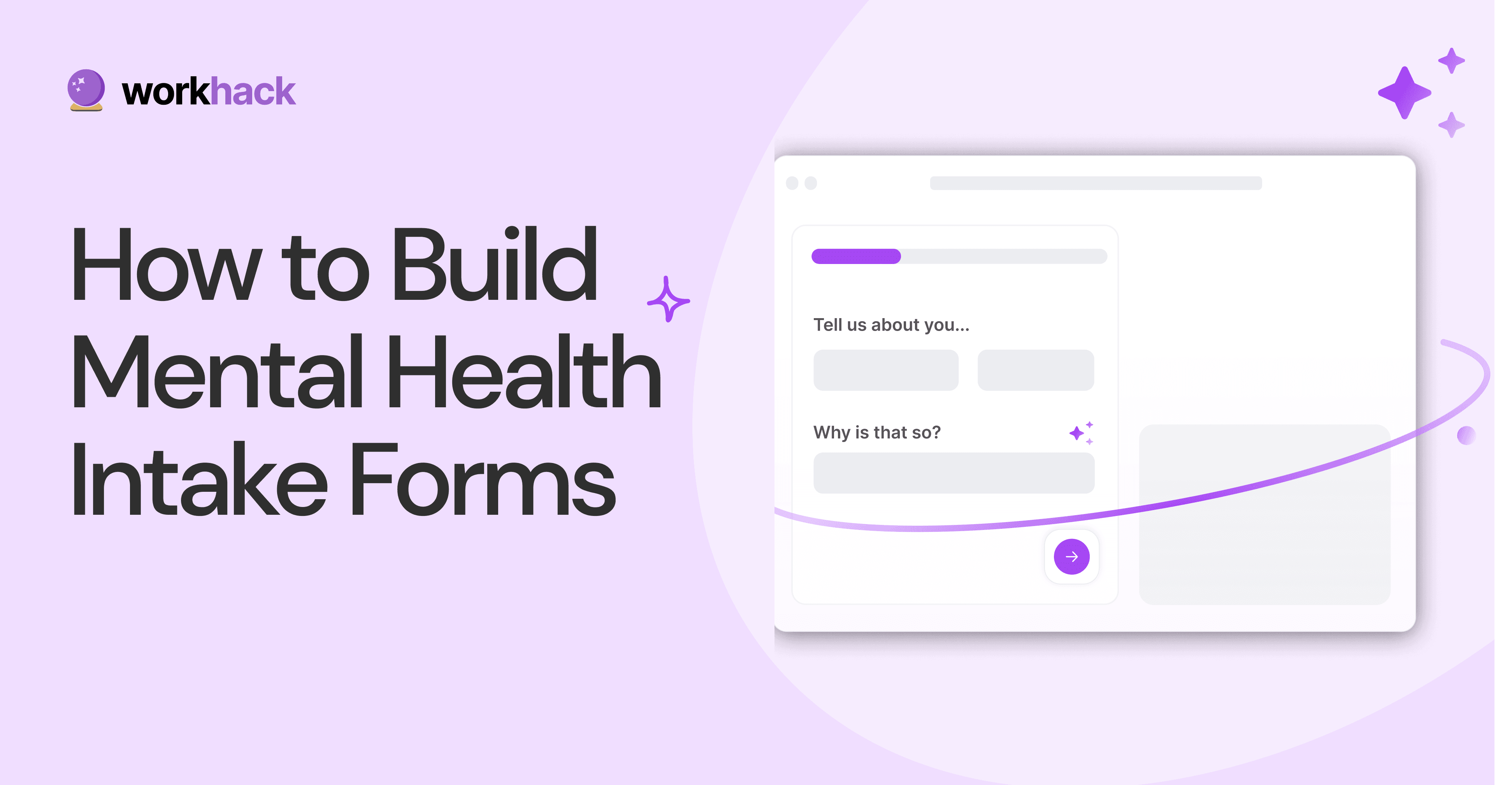
How to Build Mental Health Intake Forms?
Mental health intake forms are not like patient intake forms. Mental health intake forms deal with far more sensitive data and have specific design methods.
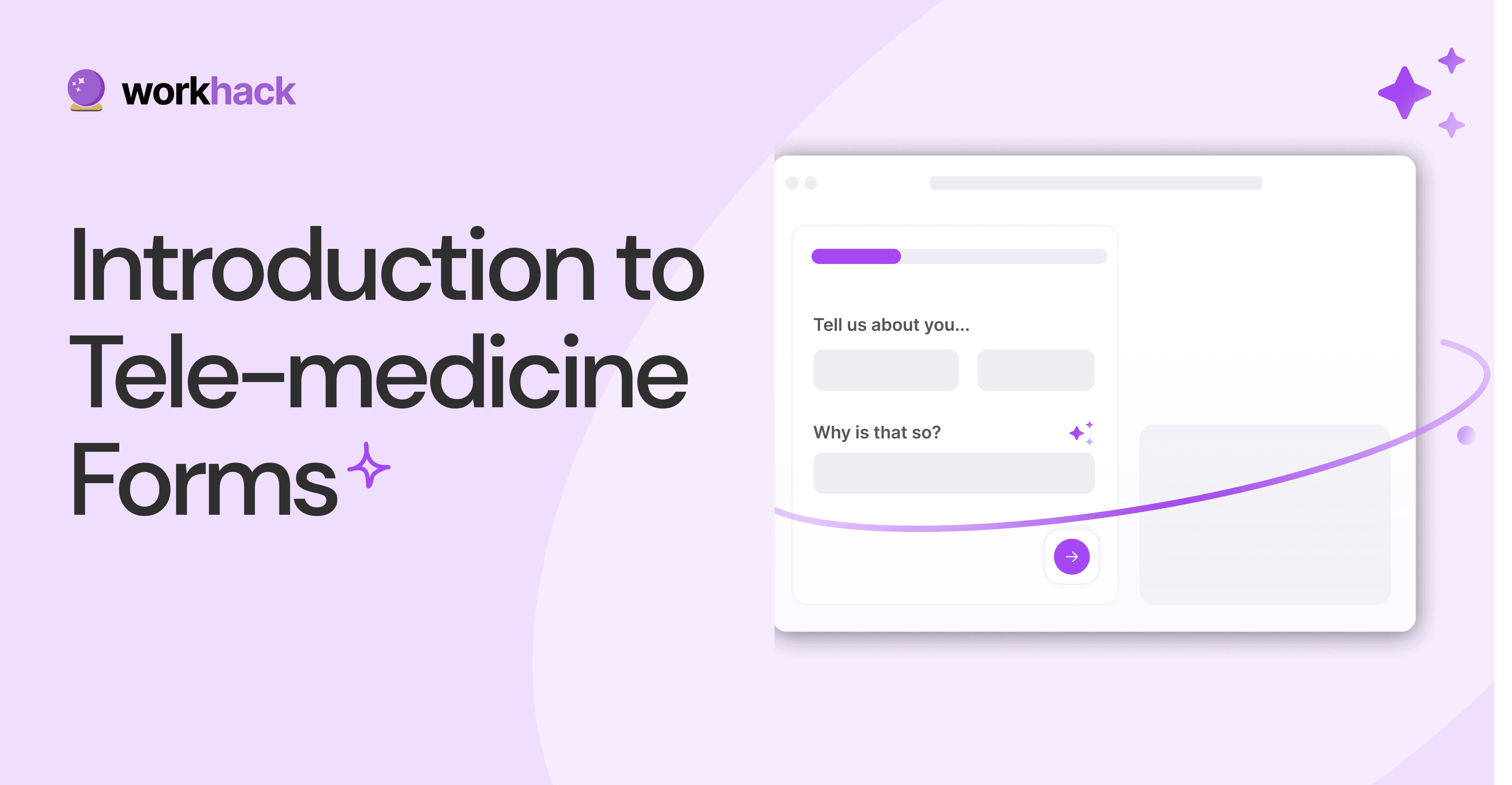
What, Why and How of Telemedicine Forms.
Telemedicine is on the rise and with different form builders out there, which one best suits your needs as a healthcare services provider?
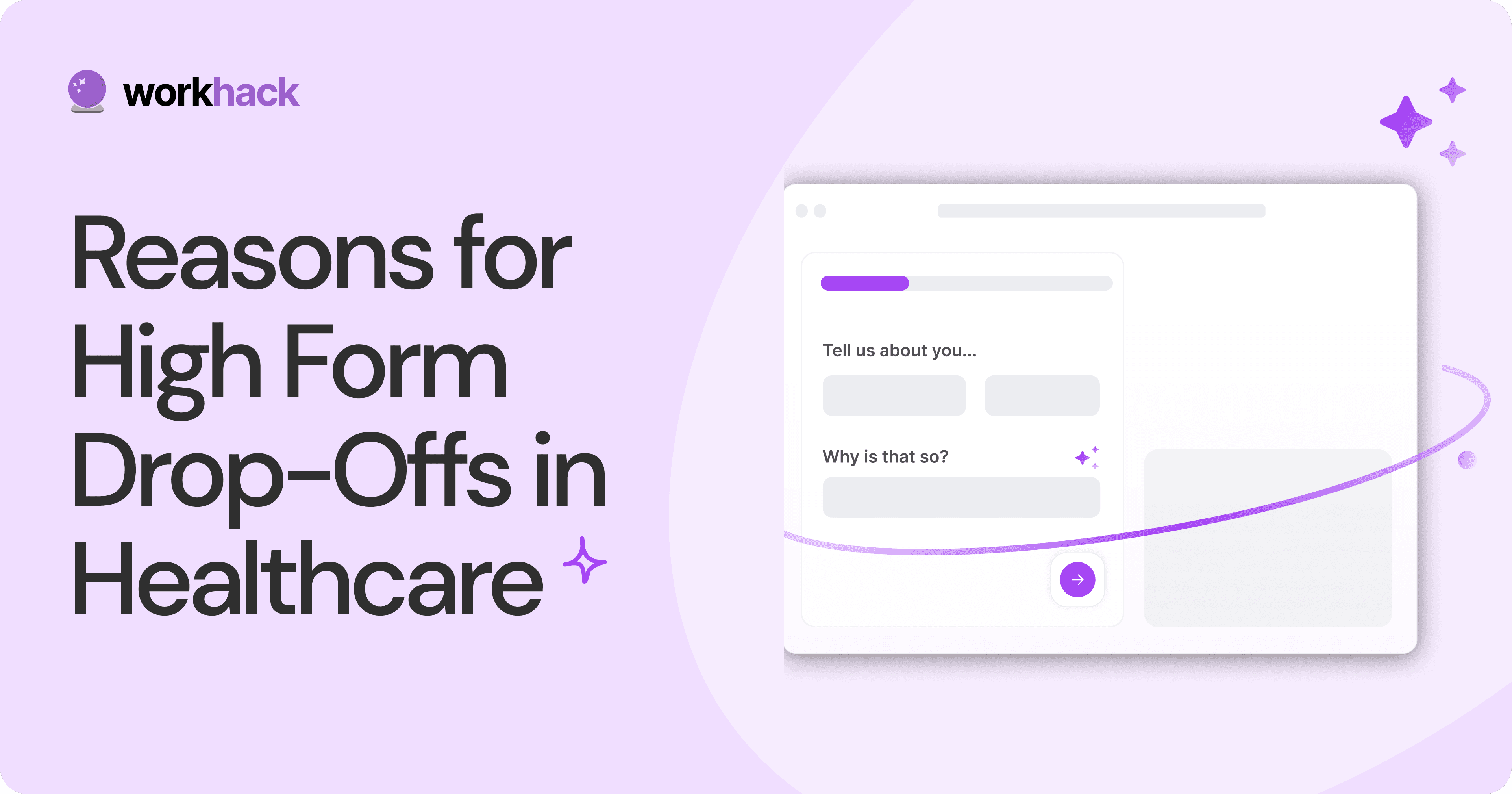
3 Reasons for Major Drop-Offs in Medical Forms.
No matter which healthcare form we pick, there are major drop-off reasons. We shall dive into the top 3 and learn how to resolve them in your next form.
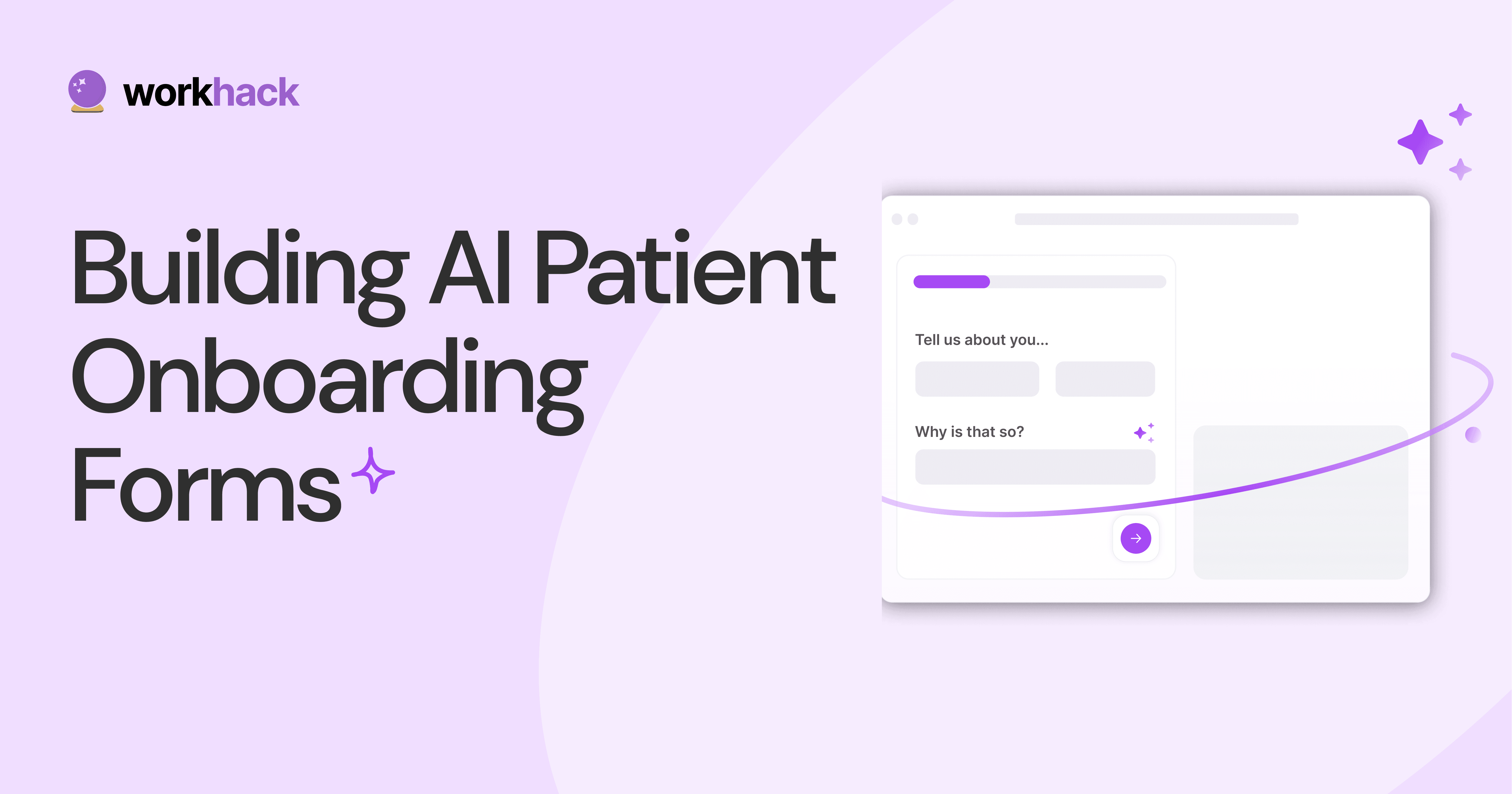
Patient Onboarding Forms - From Click to Clinic.
Patient onboarding forms are the first touchpoint for patients; getting this right for higher conversion rates is a must-have. Learn how to perfect them now.
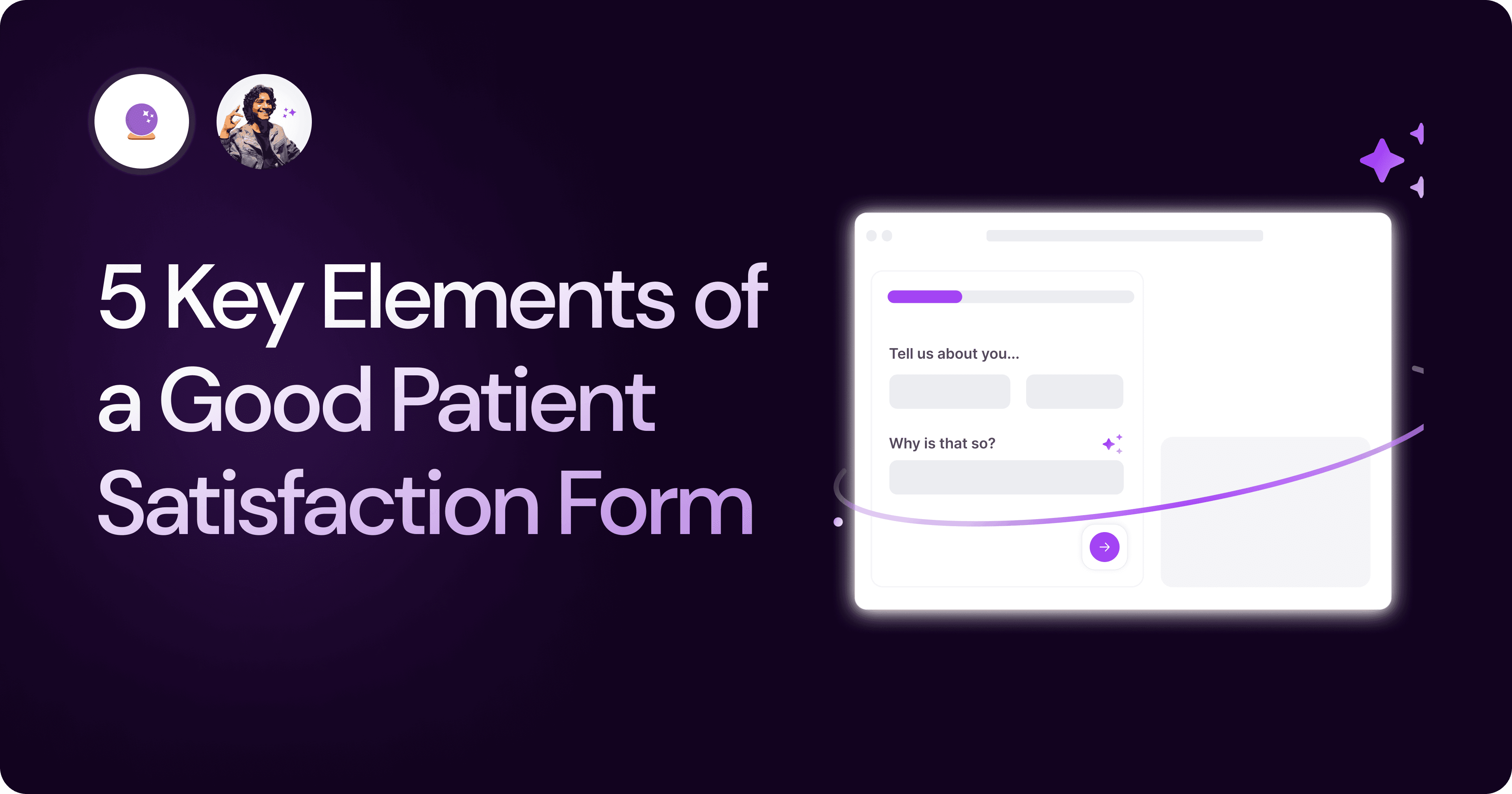
5 Key Parts of a Good Patient Satisfaction Form.
The goal of patient satisfaction surveys is to course-correct the services of a healthcare provider. Patient feedback leads to a culture of patient-centric care.
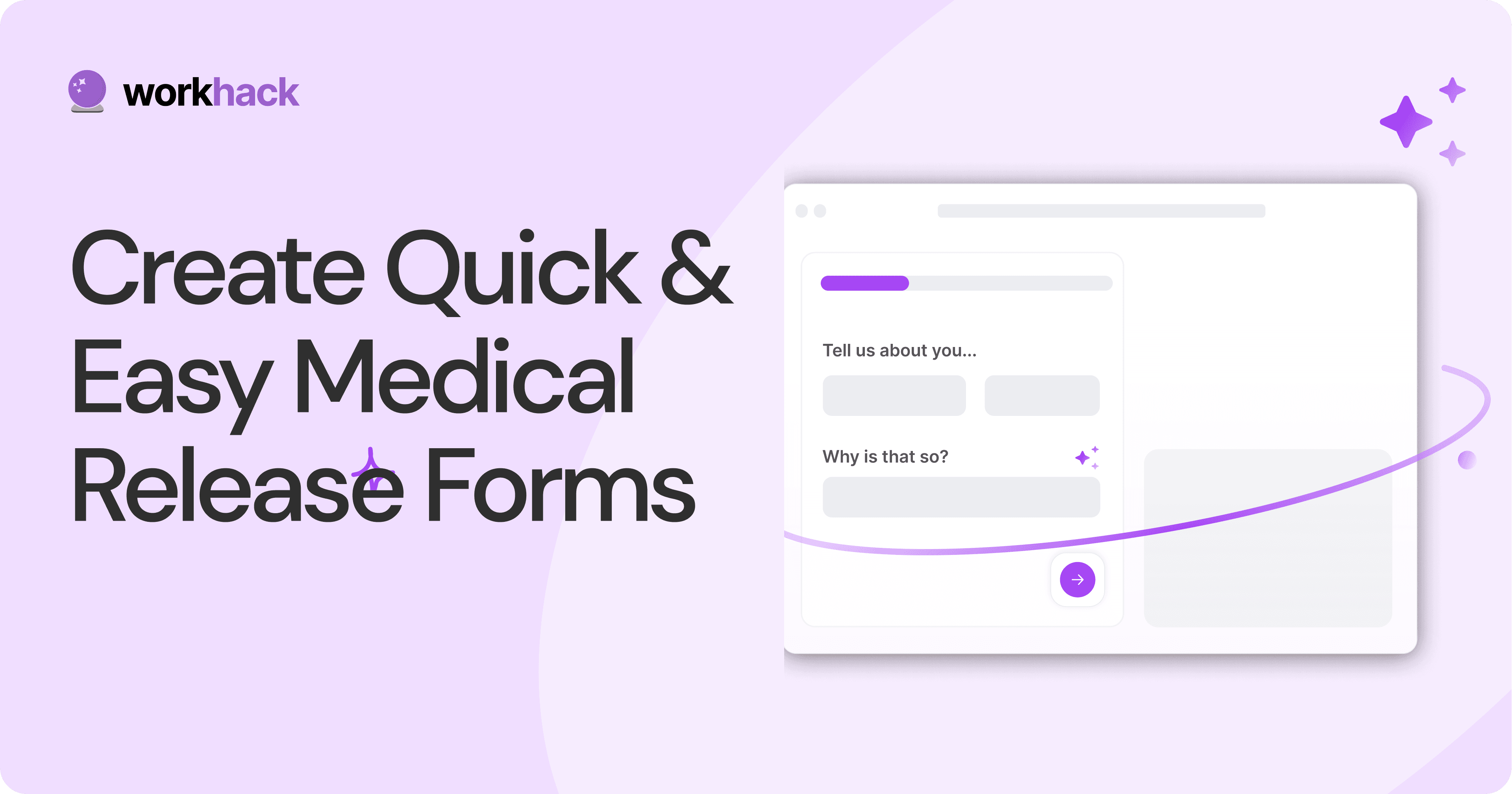
Build Quick and Easy Medical Release Forms.
Every HIPAA-compliant healthcare provider comes across medical release forms that involve details from medical history forms. Can they be shipped fast? Yes.

Nine Types of Healthcare and Medical Forms.
Medical forms are a must-have for any healthcare business or practitioner. Learn about the different kinds of medical and healthcare forms.

4 Tips for Better Medical History Forms.
Medical history forms are central to patient care, onboarding, and medical administration records. Learn how to make them easier to fill.

How to Build Mental Health Intake Forms?
Mental health intake forms are not like patient intake forms. Mental health intake forms deal with far more sensitive data and have specific design methods.

What, Why and How of Telemedicine Forms.
Telemedicine is on the rise and with different form builders out there, which one best suits your needs as a healthcare services provider?

3 Reasons for Major Drop-Offs in Medical Forms.
No matter which healthcare form we pick, there are major drop-off reasons. We shall dive into the top 3 and learn how to resolve them in your next form.

Patient Onboarding Forms - From Click to Clinic.
Patient onboarding forms are the first touchpoint for patients; getting this right for higher conversion rates is a must-have. Learn how to perfect them now.

5 Key Parts of a Good Patient Satisfaction Form.
The goal of patient satisfaction surveys is to course-correct the services of a healthcare provider. Patient feedback leads to a culture of patient-centric care.

Build Quick and Easy Medical Release Forms.
Every HIPAA-compliant healthcare provider comes across medical release forms that involve details from medical history forms. Can they be shipped fast? Yes.

Nine Types of Healthcare and Medical Forms.
Medical forms are a must-have for any healthcare business or practitioner. Learn about the different kinds of medical and healthcare forms.

4 Tips for Better Medical History Forms.
Medical history forms are central to patient care, onboarding, and medical administration records. Learn how to make them easier to fill.

How to Build Mental Health Intake Forms?
Mental health intake forms are not like patient intake forms. Mental health intake forms deal with far more sensitive data and have specific design methods.

What, Why and How of Telemedicine Forms.
Telemedicine is on the rise and with different form builders out there, which one best suits your needs as a healthcare services provider?

3 Reasons for Major Drop-Offs in Medical Forms.
No matter which healthcare form we pick, there are major drop-off reasons. We shall dive into the top 3 and learn how to resolve them in your next form.

Patient Onboarding Forms - From Click to Clinic.
Patient onboarding forms are the first touchpoint for patients; getting this right for higher conversion rates is a must-have. Learn how to perfect them now.

5 Key Parts of a Good Patient Satisfaction Form.
The goal of patient satisfaction surveys is to course-correct the services of a healthcare provider. Patient feedback leads to a culture of patient-centric care.

Build Quick and Easy Medical Release Forms.
Every HIPAA-compliant healthcare provider comes across medical release forms that involve details from medical history forms. Can they be shipped fast? Yes.

Nine Types of Healthcare and Medical Forms.
Medical forms are a must-have for any healthcare business or practitioner. Learn about the different kinds of medical and healthcare forms.

4 Tips for Better Medical History Forms.
Medical history forms are central to patient care, onboarding, and medical administration records. Learn how to make them easier to fill.

How to Build Mental Health Intake Forms?
Mental health intake forms are not like patient intake forms. Mental health intake forms deal with far more sensitive data and have specific design methods.

What, Why and How of Telemedicine Forms.
Telemedicine is on the rise and with different form builders out there, which one best suits your needs as a healthcare services provider?

3 Reasons for Major Drop-Offs in Medical Forms.
No matter which healthcare form we pick, there are major drop-off reasons. We shall dive into the top 3 and learn how to resolve them in your next form.

Patient Onboarding Forms - From Click to Clinic.
Patient onboarding forms are the first touchpoint for patients; getting this right for higher conversion rates is a must-have. Learn how to perfect them now.

5 Key Parts of a Good Patient Satisfaction Form.
The goal of patient satisfaction surveys is to course-correct the services of a healthcare provider. Patient feedback leads to a culture of patient-centric care.

Build Quick and Easy Medical Release Forms.
Every HIPAA-compliant healthcare provider comes across medical release forms that involve details from medical history forms. Can they be shipped fast? Yes.
Subscribe to stay updated.
Subscribe to stay updated.
Subscribe to stay updated.
HC

HC

HC

HC

70+ people from across industries read our emails.
HC

HC

70+ people from across industries read our emails.
HC

HC

HC

70+ people from across industries read our emails.




Bangalore, India / San Francisco, US
WorkHack Inc. 2023
Bangalore, India
San Francisco, US
WorkHack Inc. 2023
WorkHack Inc. 2023
Bangalore, India / San Francisco, US
WorkHack Inc. 2023
Bangalore, India / San Francisco, US



